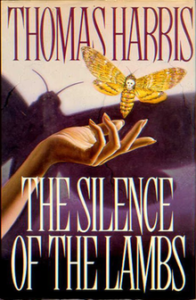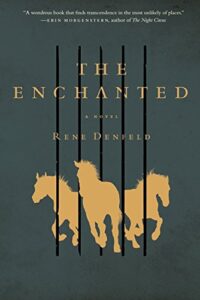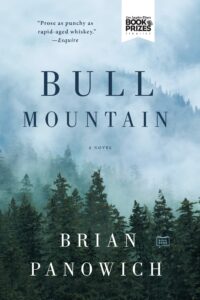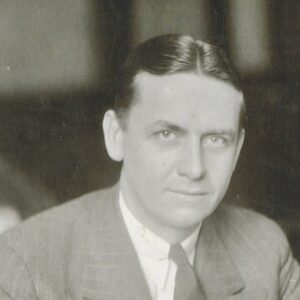Sometimes we want simple. Black hats versus white. Monsters versus humans. Nazis versus…well, everyone else. In a world of crime fiction, where order is upended and moral codes are broken, readers can appreciate a story that draws clear distinctions between right and wrong. Sometimes we want stories where the villains are villains and the heroes are heroes.
And sometimes, we want complicated.
The tough protagonist with a mysterious past has been a common trope since at least the pulp fiction of the 1920s and the advent of film noir. Over time, the protagonists of suspense fiction became more complex, more haunted, more damaged. It seems only natural that the villains would become more complex as well, complicating our reactions to them and often reminding us that the difference between hero and monster is not always clear. Troubled characters in fiction reflect our own troubled desires and impulses, our fears of a changing world, and our own capacities for evil.

The Silence of the Lambs by Thomas Harris (1988)
Dr. Hannibal Lecter first appears in Thomas Harris’ deeply disturbing Red Dragon (1981), but everyone’s favorite cannibalistic psychiatrist has a more prominent role in The Silence of the Lambs, sharing center stage with FBI trainee Clarice Starling. The FBI wants Clarice to interview the imprisoned Lecter and get his insight into another serial killer, Buffalo Bill, who abducts, kills, and skins his female victims. In the process of these interviews, Clarice forms a strange bond with Lecter, who parses out information about Bill only if Clarice shares details about her own troubled childhood. These may well be the most morally-transgressive therapy sessions in popular fiction.
So many things make this a great read, but it is Harris’ views into the psyches of Bill, Lecter, and Clarice, and the way Harris influences our reactions to them, that make this a classic. Lecter is frightening, but his intelligence and courtly behavior towards Clarice render him almost admirable, especially when compared with the horrors perpetrated by Buffalo Bill. When Lecter attempts to escape imprisonment, you are both terrified and, at the same time, rooting for him to succeed.

Polar Star by Martin Cruz Smith (1989)
In the 1980s, the Soviets were clearly the bad guys, but Martin Cruz Smith flipped the script in Gorky Park (1981), introducing Moscow homicide investigator Arkady Renko. Born into the U.S.S.R.’s ruling class or nomenklatura, Arkady recognizes how false and corrupt Soviet society is. He lives in the shadow of both his parents; his father, a Red Army general, is bitterly disappointed in his son, and his mother committed suicide when he was a boy.
Gorky Park was a triumph, but the second Arkady Renko novel, Polar Star, is a masterpiece. Dismissed from his job and separated from Irina, the love of his life, Arkady now works on a factory ship in the Bering Sea. When a crewmate’s body is brought up in a catch net, the captain pulls Arkady off the ship’s “slime line” and orders him to investigate. Reluctantly, Arkady does, and uncovers far more than he bargained for, including smugglers, espionage, slippery Americans, and an antagonist from his own past. Dogged and ironic but never completely cynical, Arkady wrestles with what it means to be a policeman in a police state, and he feels himself coming back to life even as he places himself in further danger.

The Enchanted by Rene Denfeld (2014)
The Enchanted defies easy description. It is a prison novel with flashes of magical realism; a literary novel that slowly builds suspense; a portrait of the emotional, ethical, and societal effects of the death penalty; and a testament to the power of both despair and the imagination.
“This is an enchanted place,” a death row inmate tells us. That conceit is central to this book, which pulls no punches in describing its grim setting; any sense of morality seems as archaic as the crumbling prison. And yet there is hope, whether it is in a fallen priest, a death penalty case investigator referred to only as “the lady,” an inmate’s fantastical imaginings of golden horses running deep beneath the prison, or simply a glance at a slice of sky through a window. For all the brutality and violence, there is magic here, much of it in the way Denfeld is able to humanize the darkest and vilest of men. No one is whole in The Enchanted, but through Denfeld’s harrowingly beautiful prose, we are reminded that no one is inherently evil, and no one deserves to live in pain.

Bull Mountain by Brian Panowich (2015)
The opening line of Bull Mountain about brought me to my knees the first time I read it: “‘Family,’ the old man said to no one.” That line echoes like a gunshot across the pages of this book, which spans three generations of the notorious Burroughs clan, a line of outlaws who have run moonshine, pot, and meth from their fiefdom in north Georgia. Clayton Burroughs, however, turns his back on that legacy by becoming sheriff, not to exact vengeance or justice on his kin but because he hopes this will atone for the crimes of his family. But there are some legacies you can’t walk away from, and when an ATF agent with his own personal agenda arrives to shut down the Burroughs’ criminal empire, no one is safe from retribution. Told from shifting perspectives, Bull Mountain reveals how power and pride have corrupted the Burroughs clan, and how one man’s desire to do good may not be enough. This is The Godfather set in Appalachia, with a cast of characters Shakespearean in their intensity, their tragedy, and their humanity.

Five Decembers by James Kestrel (2021)
It is November, 1941, and Honolulu detective Joe McGrady is about to have a drink after work when he is interrupted by a phone call from his captain, who assigns the rookie detective a brutal homicide. So begins James Kestrel’s novel, firmly grounded in the style and tropes of noir. One of the murder victims, butchered and strung up by his ankles, turns out to be the nephew of a Navy admiral, who exerts political pressure on the Honolulu PD to apprehend the murderer. But the lone suspect, using a fake passport, has fled Hawaii by plane for Hong Kong. Undeterred, McGrady boards a plane on December 1, 1941, not knowing that a Japanese fleet is already steaming toward Pearl Harbor.
McGrady is an Army veteran, good at his job, with a relationship that is becoming serious. He is a man with a future. But that future is shattered when war breaks out, stranding McGrady in Hong Kong at the mercy of the invading Japanese Army. The story pivots from noir thriller to war epic, but while the scope of the novel and its conflicts shift, Kestrel’s narrative style thankfully does not. McGrady must contend with regret, loss, anguish, and the savagery of war, but in the midst of these he also experiences moments of compassion, dignity, and, most surprising of all, love. Five Decembers hits all the satisfying marks of a murder mystery and then transforms into something else without compromising a single shadow of its noir origins, and Joe McGrady is a character whose story I’ll be thinking about for a long time.
***


















